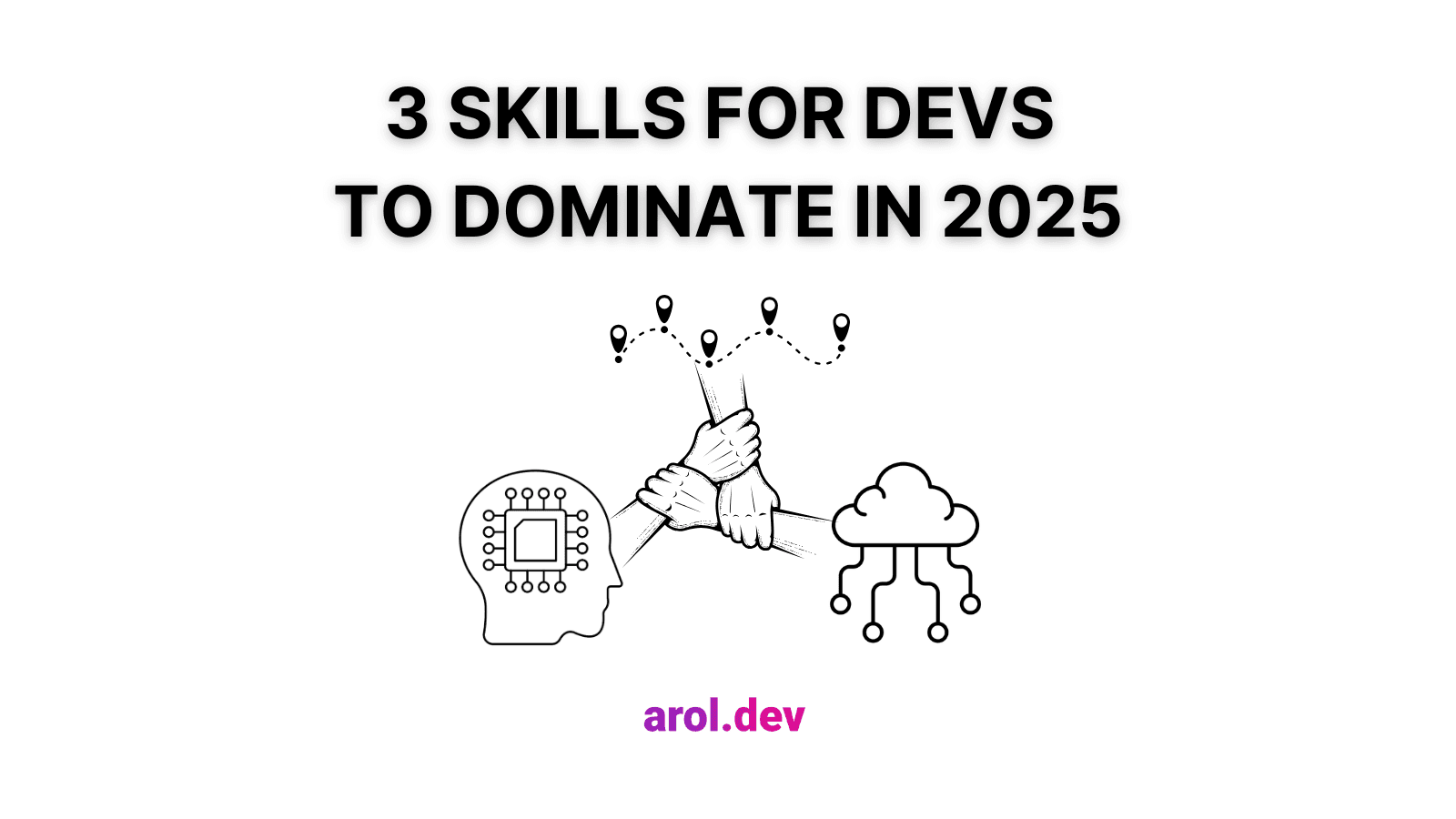3 Software Engineering Skills That Will Dominate in 2025
The role of a software engineer is evolving rapidly. It’s no longer just about writing code. Today’s engineers must also be product strategists, versatile problem-solvers, and effective system administrators. At arol.dev, we believe that mastering these skills is key to staying ahead in the industry. In this post, we break down the three most critical skills that will dominate in 2025.
1 Becoming More Product-Oriented
Modern software engineers must think like product builders, aligning technical decisions with customer needs and business outcomes. This shift requires collaboration with cross-functional teams, data-driven experimentation, and a deep understanding of user pain points. In short, successful engineers today need to think like product managers.
This means:
Understanding Customer Needs: Work closely with product managers and designers. Use tools like Productboard or Canny to set up a customer feedback loop that gathers and prioritizes feature requests.
Data-Driven Decision Making: Use analytics tools such as Mixpanel or Amplitude to track user behavior and make informed, data-backed decisions.
A/B Testing & Feature Flags: Embrace product experimentation by using A/B testing tools like LaunchDarkly or Split.io to validate product hypotheses, while implementing feature flags to roll out changes gradually.
Business Impact Alignment: Frame technical decisions (e.g., tech stack choices) in terms of ROI, scalability, or time-to-market.
Being product-oriented means making technical decisions with business impact in mind. It requires a deep understanding of customer pain points and a relentless focus on delivering value.
2 Balancing Specialization and Generalization
AI tools like GitHub Copilot and LLMs are reshaping software development. Engineers can now automate repetitive tasks, accelerate problem-solving, and expand their scope. But this demands a balance between specialization and generalization. Today’s engineers are expected to:
Augment Their Capabilities: Use AI-powered tools like GitHub Copilot for code completion, documentation, and test generation. For example, automating API endpoint scaffolding to focus on business logic.
Embrace Versatility: While deep expertise in one area remains critical, a broader knowledge across domains lets you tackle a wider range of challenges. And AI lowers the barrier to entry for adjacent fields. For example, you can use ChaGPT to draft documentation or troubleshoot infrastructure scripts.
Assure Quality: Tools that assist with code reviews like DeepCode help catch issues early, providing insights that improve overall code quality. For example, it automatically flags security vulnerabilities in pull requests.
This balance between specialization and generalization means that an engineer isn’t pigeonholed into one narrow role. Instead, they become more adaptive and better equipped to solve complex, cross-domain problems.
3 Mastering System Administration and Optimization
As cloud infrastructure grows more complex, engineers must own deployment, monitoring, and scalability, not just code. System administration is no longer siloed; it’s a core skill for ensuring reliability and performance. Every engineer needs a solid grasp of infrastructure and optimization:
Infrastructure Automation: Get hands-on with container orchestration tools like Kubernetes, and build robust CI/CD pipelines to ensure smooth deployments.
Monitoring & Troubleshooting: Use monitoring tools such as Datadog or New Relic to keep your applications running efficiently. For example. they can identify memory leaks using AMP (Application Performance Monitoring).
Infrastructure as Code: Learn how to manage cloud resources using IaC tools. This not only streamlines deployment but also minimizes human error.
A strong foundation in system administration ensures that you can independently troubleshoot production issues, optimize performance, and scale solutions as needed.
Conclusion
In 2025, the most successful software engineers will be those who do more than just write code. They need to wear multiple hats. They are product-oriented, balancing deep specialization with a broad understanding of multiple domains, and proficient in managing and optimizing systems.
Start building these skills today by experimenting with the tools and examples above. At arol.dev, we’re passionate about helping engineers develop these skills to drive innovation and deliver real value.
Ready to master the skills that will shape the future? Explore our programs and resources at arol.dev.
